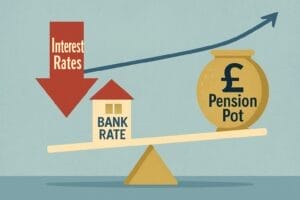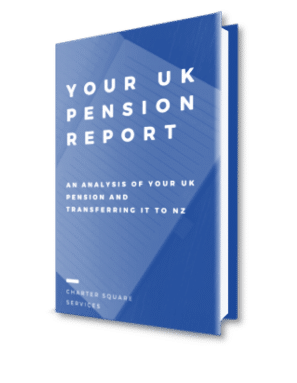We’ve been in the pension transfer game a while, since 1999 to be precise, so have seen our fair share of crises. Most of them have the common theme of a big drop in the share market, lots of defaults, increased unemployment and the money-go-round seizing up. This is why the governments usually respond with big stimulus packages. But what lessons does history teach us for UK pension holders.
THE GFC: UK defined benefit schemes plunged into the red
The 2008 financial crisis had a major impact on global pension assets, with the OECD estimating declines of $5.4tn (over 20%) at the end of 2008. At the time about 60% of OECD pension assets were in defined benefit and other plans which offer return or benefit guarantee (see https://www.oecd.org/pensions/private-pensions/45694491.pdf)
So what did we see specifically during the GFC:
- UK defined benefit schemes in deficit increased three fold
- Some UK defined benefit schemes started factoring transfer values to reflect funding levels within the scheme (those schemes that didn’t effectively left the burden to the remaining members)
- People transferring out to get their hands on the cash and then depositing it in fully government backed deposit schemes (there was a lot of panic)
COVID-19: UK defined benefit schemes plunge into the red
It seems that the legacy of the GFC was never addressed within UK pension schemes who have continued to run deficits even during the economic recovery post GFC. As recently as February the Pensions Regulator was making noises requiring UK schemes to clear their deficits within seven years (see https://www.ft.com/content/443eb536-5951-11ea-abe5-8e03987b7b20) by injecting billions more into pensions.
With markets dropping 30% since February and profit warnings being issued left right and centre, it is unlikely that companies are going to be focusing on topping up their pension funds as per the Regulators request. We believe that slowly schemes will start to implement measures to scale back the transfer values to reflect their funding position. So for holders of defined benefit pensions you need to know what the funding position of your scheme is and how this is impacting your transfer value.
THE GFC: the banking sector collapsed first… forcing people into the pension protection fund
The GFC was precipitated by sub-prime mortgages failures, taking down banks that had large exposure to these. Lehman Brothers and Northern Rock were high profile failures in the UK, and a number of others would have failed if the UK government had not rescued them.
Once the company had failed their pension schemes were placed into the Pension Protection Fund (PPF) in the UK. While the PPF currently guarantees 90% of the original pension, you can only receive it as a pension. New Zealand based holders of pensions in the PPF are getting their reduced pensions at retirement and having to declare it as fully taxable income in New Zealand.
COVID-19: The travel and tourism sector is collapsing
This pandemic is decimating the travel industry in the UK and with it the pensions of these companies will be effected. British Airways owner IAG has seen their share price fall over two thirds as has easyjet. Heathrow airport (formerly BAA) is now privately owned but 10% of the shares held by the Universities Superannuation Scheme in the UK – and there are other knock on consequences everywhere. You need to understand what is happening with your former employers company and pension scheme immediately. The biggest losers on the FTSE 100 so far are: Carnival (cruises), TUI (travel), IAG, Easyjet.
THE GFC: Contagion spread to other sectors but not as badly as banking
While there was a broad financial rout during the GFC it seemed to be the case that bad companies failed and good companies found a way to survive and thrive.
At the end of the day the shock of the GFC was financial and so the ripples effected everyone outside of financial services relatively equally. COVID-19 is different as the financial crisis is a consequence of the pandemic. The consequences of social isolation measures effect big UK businesses like the Compass Group (contract caters), Transport for London (TfL), Restaurant Group (down nearly 80%).
THE GFC: Those that got out early did well
People that transferred out of their defined benefit schemes early generally did well, because:
- They did not suffer from scaled back transfer values based on funding positions
- They invested at the start of a great bull run for equities and financial markets in general
The COVID-19 crisis looks to have similar hallmarks, the difference being that transfer values are at all time highs. So now is a better time than ever to get across your UK pensions.



